Can Meditation Reduce My Stress and anxiety?
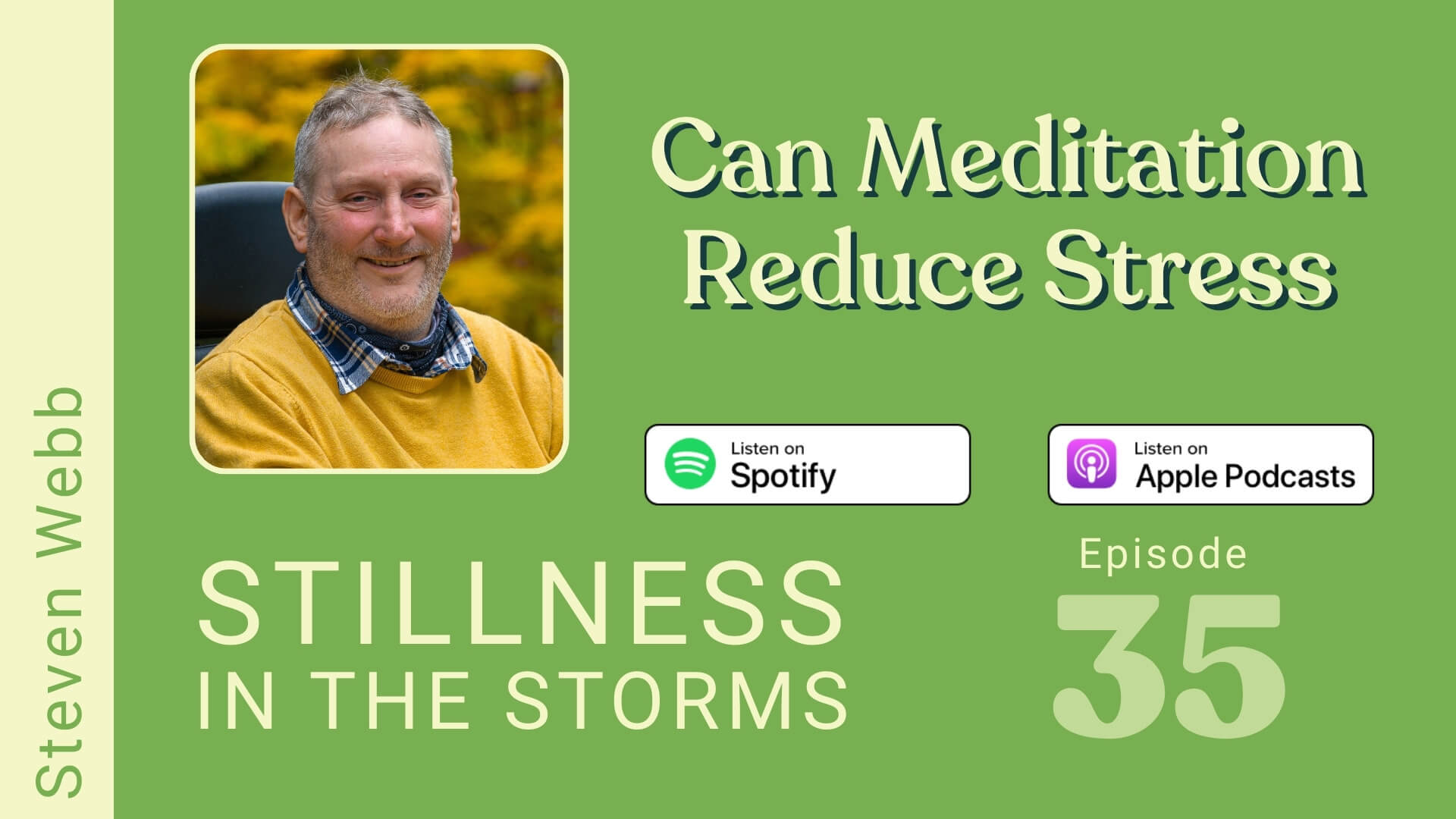
We often hear how meditation is the one thing that will save us from everything. It will improve our health, allow us to live many more years, reduced anxiety, and remove stress. Is it really realistic?
I’m Steven Webb, the host of Stillness in the Storms. And what a lot of people do not know about me is that I get stressed, and I am a long time sufferer of overwhelm. It is time to talk about it, and how I use meditation to help manage my overwhelm and stress.
The Middle Way | Life with less Suffering
Links to Steven Webb’s podcast and how you can support his work.
- Donate paypal.me/stevenwebb or Coffee stevenwebb.uk
- Steven’s courses, podcasts and links: stevenwebb.uk
Today, I want to dive into the idea of balance and the middle way. I’ve had a super long day filled with meetings, but instead of feeling drained, I’m reflecting on how I can find satisfaction in my daily life, even when things get tough. It’s really about staying present, no matter how chaotic things might seem. We all have moments that feel overwhelming, but just because one part of the day is challenging doesn’t mean the whole day is a loss. Let’s explore how we can approach each moment with calmness, breathe through the stress, and appreciate the journey, even when it gets rocky.
Very often you hear in Buddhism about the middle way, but what does it really mean to live the middle way. This podcast is a general chat at the end of a long day, and how I remain positive and optimistic without going into my own suffering.
Balance is key in life, especially after a long day filled with meetings and responsibilities. Stephen Webb shares his personal journey as a city councillor and mindfulness coach, illustrating how even when life feels overwhelming, finding the middle ground can lead to satisfaction. He stresses that it’s not about avoiding challenges, but about facing them with a calm heart and a present mindset. By acknowledging both the highs and lows, we can cultivate a sense of peace even in chaos. It’s about managing our expectations and recognizing that tough moments don’t define our entire day. We can still find joy in the little victories, like engaging in meaningful discussions about improving our community, despite the fatigue. Each moment offers a chance for mindfulness, inviting us to breathe and embrace the present, no matter how challenging it may be.
Takeaways:
- Balance is key in life, even amidst the chaos of meetings and responsibilities.
- Our daily experiences don’t have to define our overall mood or satisfaction.
- It’s important to practice mindfulness during challenging moments, not just in peaceful ones.
- Finding calm in stressful situations takes practice, but it’s essential for well-being.
- Recognizing both pleasant and unpleasant moments is vital for true balance in life.
- Going to bed satisfied with the day shows that even tough days can have value.
The Middle Way | Life with less Suffering
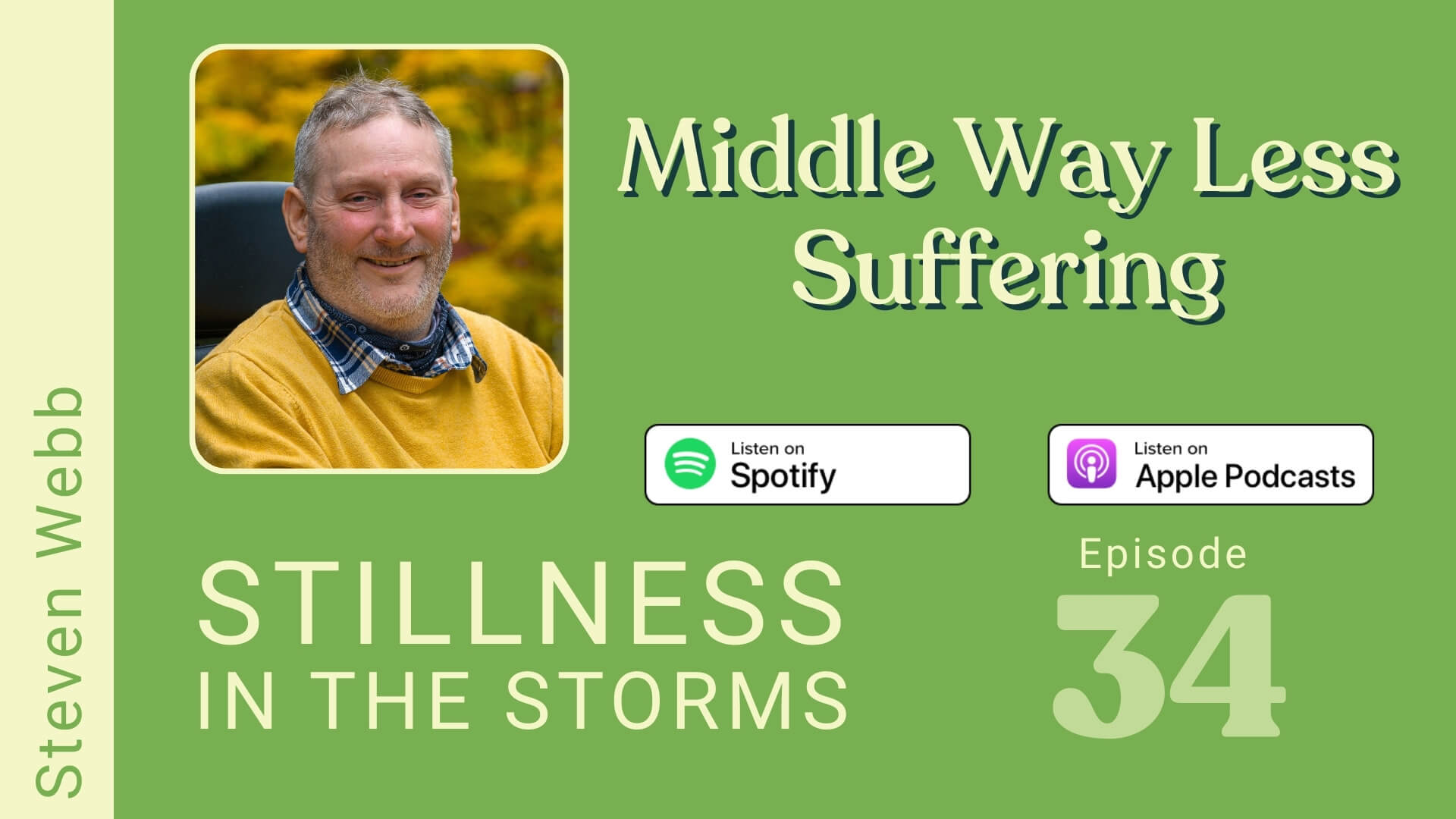
Very often you hear in Buddhism about the middle way, but what does it really mean to live the middle way. This podcast is a general chat at the end of a long day, and how I remain positive and optimistic without going into my own suffering.
7 Things We and Governments Should Learn from 2020
Links to Steven Webb’s podcast and how you can support his work.
- Donate paypal.me/stevenwebb or Coffee stevenwebb.uk
- Steven’s courses, podcasts and links: stevenwebb.uk
We’re diving into the seven crucial lessons we should all take away from 2020. First off, it’s clear that our economy really depends on everyday people spending money. We chat about how key workers kept everything running while some big businesses just sat back. Then, we explore the unpredictability of life, emphasizing that anything can happen, and that human connection is more vital than ever. We also tackle the confusing rules from governments and how they need to be clear and straightforward. Lastly, we discuss how the stock market doesn’t reflect the real economy anymore, and how journalism has become too commercialized, losing its critical edge. Let’s get into it!
Takeaways:
- The economy needs everyday people spending money to keep it running smoothly, that’s a fact.
- Key workers, like nurses and grocery store employees, are essential and deserve better recognition and pay.
- 2020 taught us that anything can happen, and we should be prepared for the unexpected.
- Human contact is crucial, and we should never take it for granted, especially after 2020.
- Journalism is becoming more commercialized, and this trend needs to be addressed for better accountability.
- The stock market and the economy are out of sync, which poses serious risks for businesses and society.
2020 has been a wild ride, right? Stephen dives deep into seven key lessons we should take away from this rollercoaster of a year. First on the list is the reminder that the economy is all about us—the everyday folks who keep the wheels turning by spending our hard-earned cash. Without us, those big businesses can’t thrive, no matter how many government handouts they get. This point really hits home as we reflect on the furlough schemes and stimulus checks that were meant to help us keep the economy afloat. It’s a wake-up call for governments to prioritize individual financial support because when we have money, we spend it, and that keeps the economy buzzing.
Next, Stephen emphasizes the incredible value of key workers. These are the unsung heroes who kept everything running during the pandemic—grocery store employees, nurses, delivery drivers, and so many others. Their dedication and sacrifice were crucial, often at great personal risk, and it’s about time we recognize their importance beyond just clapping on Thursdays. They deserve better pay and respect, not just during crises but always. Stephen hopes that this newfound appreciation doesn’t fade away once the dust settles.
As the discussion unfolds, Stephen touches on the unpredictability of life, human connections, and the need for clear rules. The pandemic has taught us that anything can happen at any time—no one saw this coming! It’s also highlighted how vital human contact is; we crave connection, and the absence of it has been tough. Through it all, Stephen lays out a thoughtful analysis of how government actions can be improved and how we, as a society, can ensure we learn from the challenges we faced in 2020. Each lesson is a stepping stone towards a better future, and he encourages listeners to reflect on their own growth during this unprecedented time.
7 Things We and Governments Should Learn from 2020
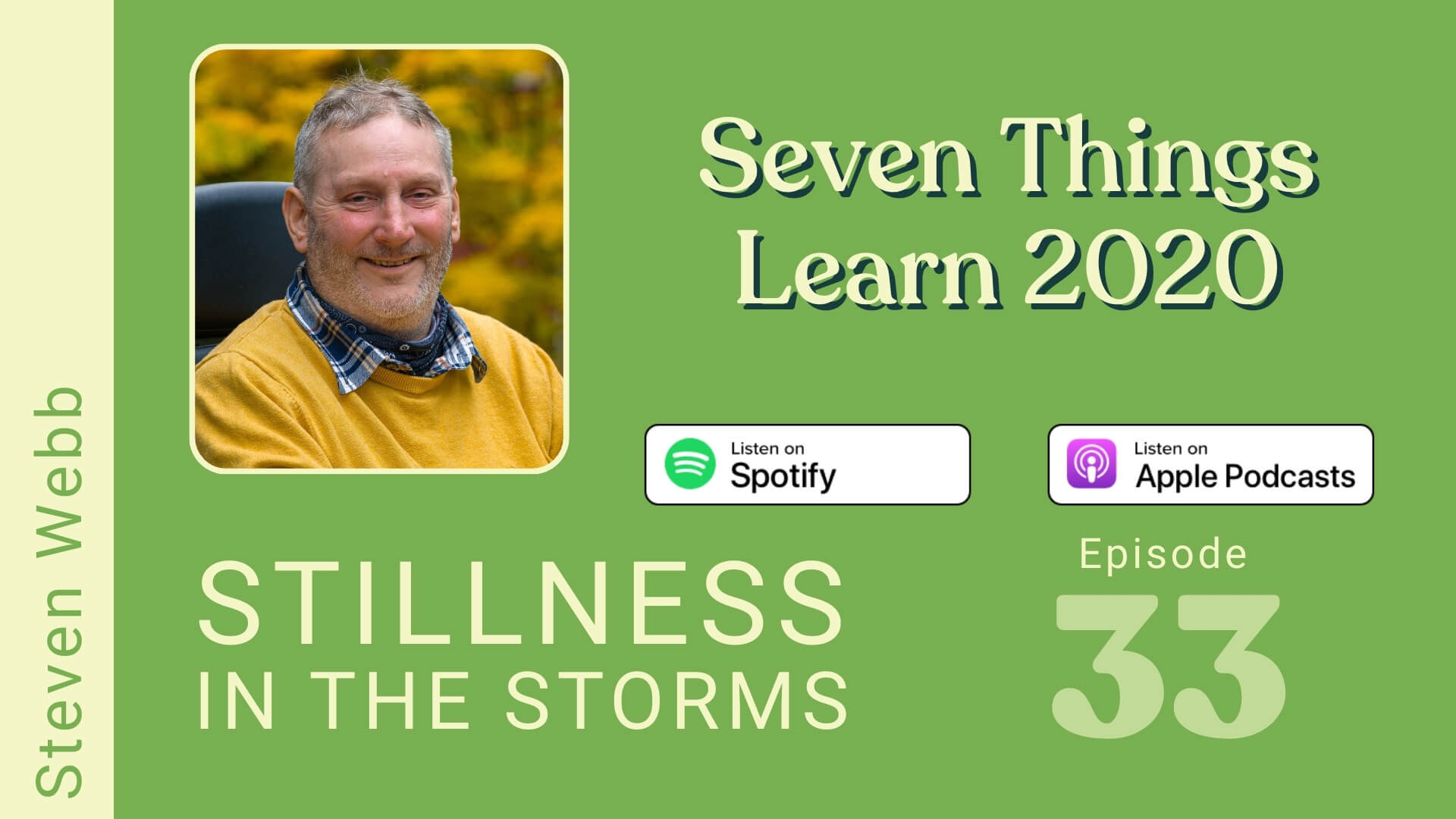
What are the things that we should learn from 2020, and not only asked what about the governments? In this episode Steven Webb explores a few things we could all learn, as well as governments from 2020 and the coronavirus/COVID-19.
Why You Are Already Living Your Best Possible Life
Links to Steven Webb’s podcast and how you can support his work.
- Donate paypal.me/stevenwebb or Coffee stevenwebb.uk
- Steven’s courses, podcasts and links: stevenwebb.uk
You’re already living your best possible life, and I’m here to convince you of that. I know it sounds wild, especially coming from someone like me who has faced some serious challenges. But here’s the deal: we often get stuck thinking about all the “what ifs” and imagining that some other version of our lives would be so much better. The truth is, we can’t live those alternatives, and they might not be better at all. So let’s stop comparing our lives to some ideal that doesn’t exist and start embracing what we have right now. Trust me, accepting our current situation can lead us to a more peaceful and fulfilling life.
We may not like the prospect that we are already living the best possible life, but that’s the reality. However, it doesn’t mean we have to settle for it.
The podcast kicks off with a heartfelt discussion about living our best lives, even when life throws us curveballs. I share my personal journey of navigating paralysis and how it has profoundly changed my outlook on happiness and fulfillment. This isn’t just a tale of struggle; it’s about finding peace and purpose even in challenging circumstances. The main focus of the episode is to challenge the notion that we should constantly strive for a different life. Instead, we should appreciate what we have and recognize that our current situation might just be the best version of our lives. Through my own experiences, I emphasize that it’s easy to get caught up in ‘what if’ scenarios—what if I had taken a different path or made different choices? But the truth is, we can’t live those alternatives, and often, they aren’t as great as we imagine.
As the episode unfolds, I dive deeper into the pitfalls of comparing ourselves to an idealized version of life. We often look at others and think they have it all figured out, but we don’t see their struggles. I share stories from my past, where I had grand dreams and ambitions, but life led me down a different path. This part of the conversation is designed to encourage listeners to reflect on their own lives and understand that every journey is unique. I also touch on the idea that the alternatives we fantasize about are often viewed through rose-colored glasses. We can easily overlook the challenges that come with those dreams and the fact that they might not lead to greater happiness.
In closing, I urge everyone to embrace their current life and to stop longing for an alternate reality. Happiness isn’t found in what could have been; it’s found in acceptance and appreciation for the here and now. I encourage listeners to let go of the ‘should haves’ and instead focus on the beauty of their existing lives. The episode wraps up with a powerful reminder that inner peace is attainable when we stop chasing illusions of perfection and start living in the moment.
Takeaways:
- Even in tough situations, it’s essential to recognize that you’re living your best life right now.
- Comparing your life to imagined alternatives can lead to dissatisfaction and unhappiness, so embrace your current reality.
- Life’s challenges, like my paralysis, can help us appreciate what we have and the journey we’re on.
- We often don’t know if the alternative paths we think about would actually be better for us.
Why You Are Already Living Your Best Possible Life
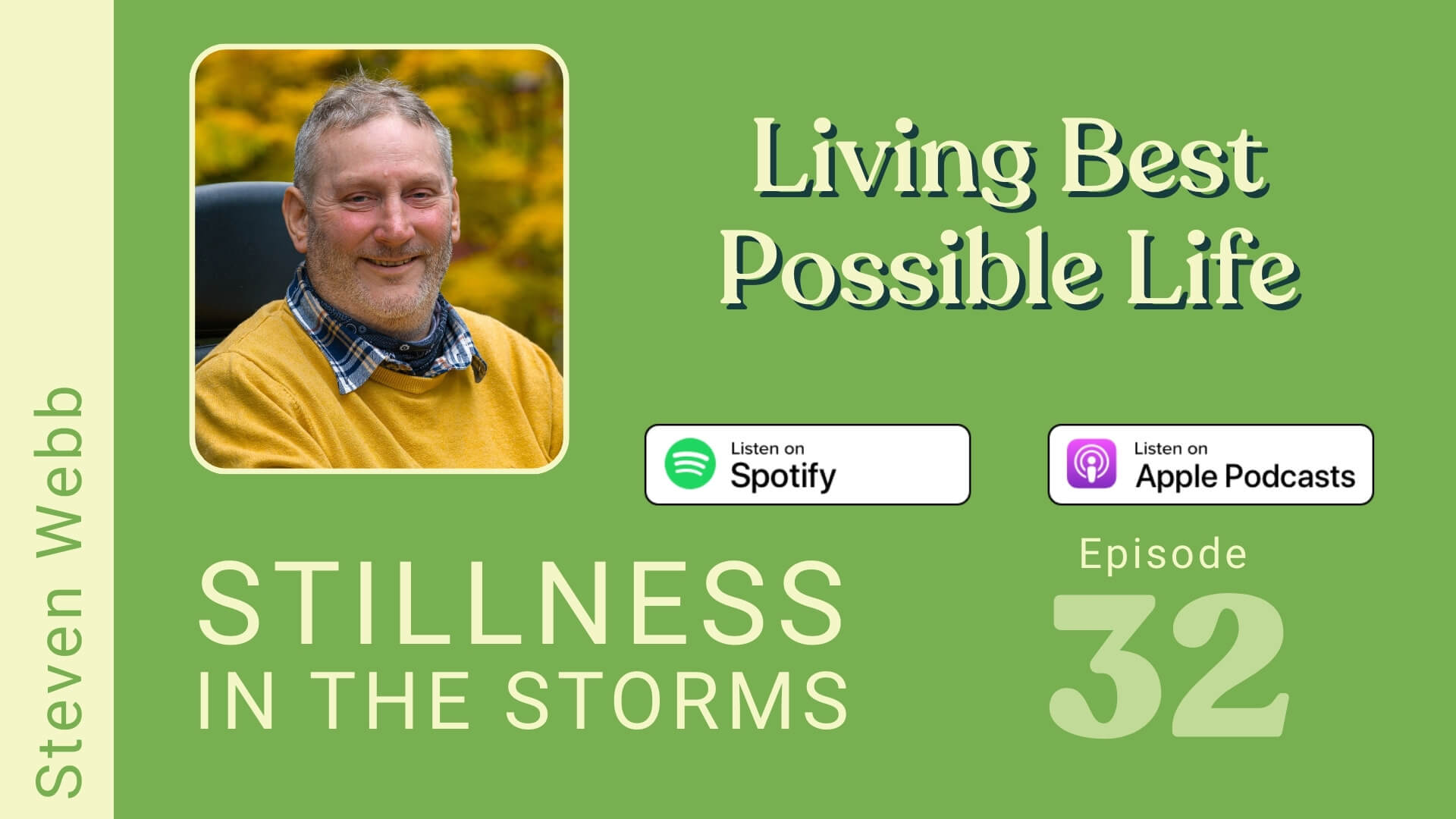
We may not like the prospect that we are already living the best possible life, but that’s the reality. However, it doesn’t mean we have to settle for it.
Why the 'Spiritual Journey' WILL NOT Reduce Your Suffering
Links to Steven Webb’s podcast and how you can support his work.
- Donate paypal.me/stevenwebb or Coffee stevenwebb.uk
- Steven’s courses, podcasts and links: stevenwebb.uk
We’re diving deep into the idea that if you’re struggling and looking to ease your suffering, a spiritual journey might not be the answer. I share my own experience of hitting rock bottom and how I realized that chasing spiritual growth only led to more suffering. We talk about how often we replace one kind of suffering with another, thinking we’re on the path to enlightenment. Instead of focusing on grand spiritual goals, I suggest taking small steps each day to reduce your suffering. Join me as we explore practical ways to find a little more peace in our lives without getting caught up in the pitfalls of spiritual attachment.
Even before we realised we embark on the spiritual journey, we want to reduce our suffering. Let’s talk about reducing suffering rather than the spiritual journey, and perhaps we might get somewhere.
This episode tackles the intricate relationship between suffering and the spiritual journey, sharing insights drawn from personal experience. I reflect on how the quest for enlightenment can sometimes replace one form of suffering with another, particularly when we become fixated on outcomes rather than the present moment. Listeners are invited to explore the reality that many of our struggles stem from internal expectations rather than external circumstances. Through my own story, I illustrate how a desire for spiritual growth can lead to disillusionment if not approached thoughtfully.
The discussion pivots towards actionable advice on how to navigate through life’s challenges without the added expectations of spiritual success. I emphasize recognizing the sources of our suffering, whether they are emotional, physical, or mental, and taking responsibility for our healing process. By focusing on small, manageable changes in our daily lives, we can begin to alleviate suffering without the pressure of achieving a ‘perfect’ spiritual state. This episode encourages listeners to embrace their humanity and acknowledge that suffering is a natural part of life, but it doesn’t have to be the end of the story.
Ultimately, the message is about finding balance—between striving for personal growth and accepting where we are in the moment. By understanding that our thoughts can shape our reality, we can cultivate a mindset that fosters peace and resilience. This episode serves as a reminder that the journey to inner peace is not about reaching a destination but about the steps we take along the way.
Takeaways:
- Embarking on a spiritual journey might just add more suffering to your life.
- Finding inner peace is about reducing suffering, not chasing enlightenment or happiness.
- Realizing that most of my suffering comes from my own actions was a big breakthrough.
- Improving by just 1% each day can lead to significant changes over time.
Why the ‘Spiritual Journey’ WILL NOT Reduce Your Suffering
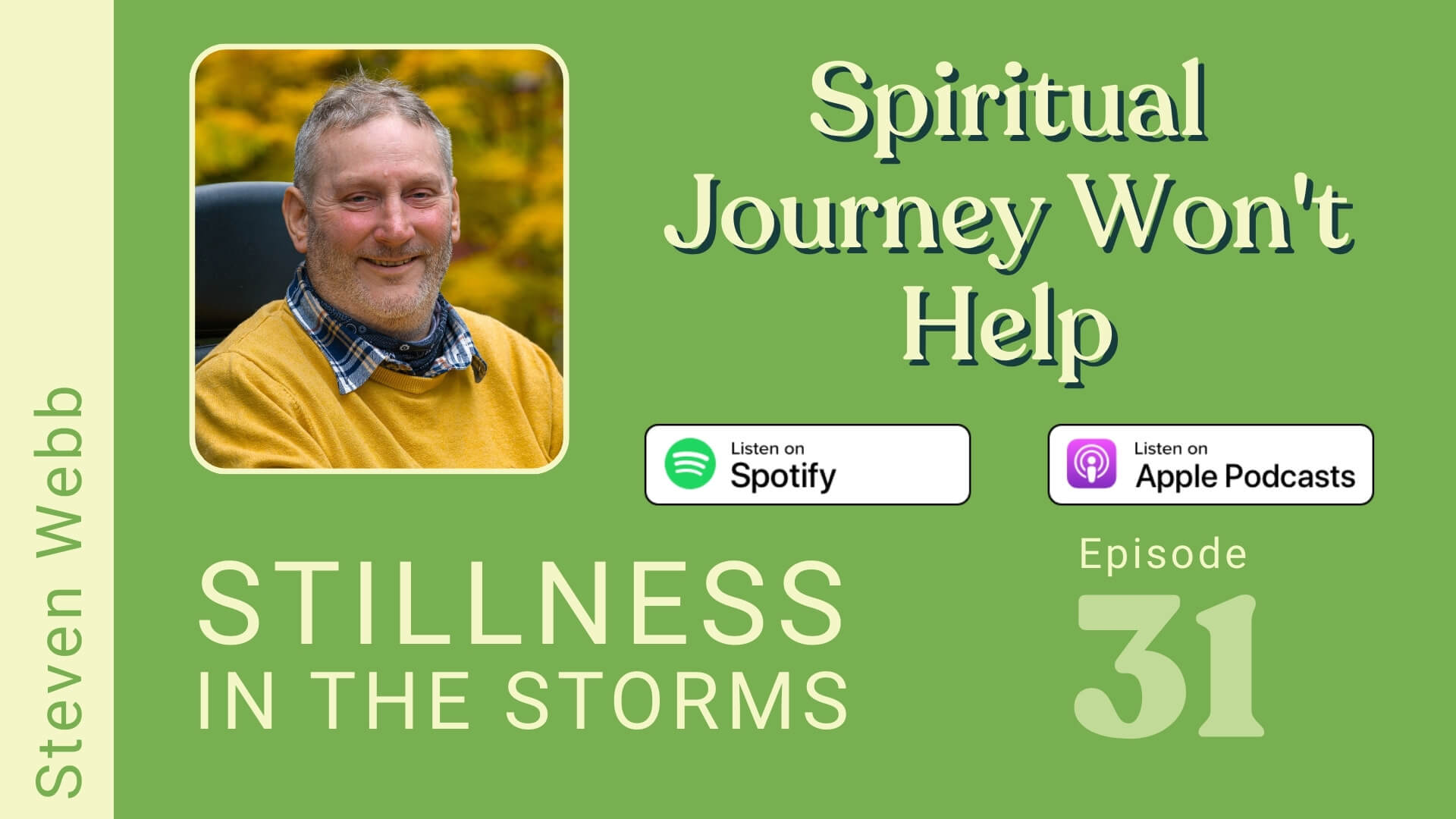
Even before we realised we embark on the spiritual journey, we want to reduce our suffering. Let’s talk about reducing suffering rather than the spiritual journey, and perhaps we might get somewhere.
How to SOLVE 99% of YOUR PROBLEMS
Links to Steven Webb’s podcast and how you can support his work.
- Donate paypal.me/stevenwebb or Coffee stevenwebb.uk
- Steven’s courses, podcasts and links: stevenwebb.uk
We’re diving into how to tackle 99% of your problems. Seriously, it sounds big, but it’s all about being aware of what’s really causing your suffering. We chat about how we often try to numb our pain instead of facing it. Think of it like having a headache: taking painkillers won’t fix the problem if you don’t address what’s causing it. We emphasize that by understanding the root of our issues, we can make them disappear like magic. So grab a pen and paper, because we’re about to get real about what’s behind your stress!
Solving most of your problems is a big claim. Is it really possible to solve 99% of your problems? I think it is, however you’ve got to do one thing in order to make that possible. If you don’t do what I talk about in this episode you will never be able to get rid of any of your problems.
Life throws us all sorts of punches, right? So, what if I told you that most of our problems could be tackled with just a couple of simple shifts in how we view them? During our chat today, I dive deep into the idea that to really solve our issues, we need to face them head-on instead of just trying to numb the pain. Think of it like dealing with a headache. Sure, popping painkillers might help for a bit, but if you don’t figure out why that headache keeps coming back, you’re just playing a short-term game. We explore how many of us, including governments and organizations, often react to problems instead of addressing their roots, leaving them to fester. The key takeaway? Dig deep into what’s really causing your stress. Once you pinpoint those core issues, many of your other problems may just melt away. We also throw in some practical tips on managing stress, like ensuring you get enough sleep and eating well to lay a solid foundation for tackling life’s challenges.
Takeaways:
- We often face problems because we avoid dealing with the root causes of our suffering.
- To truly solve our issues, we need to face our suffering head-on and understand its origins.
- Life will always throw challenges at us, but we can lessen the impact by being prepared.
- Identifying the core issues in our lives can help us resolve multiple problems at once.
- Ignoring our problems only leads to more suffering; we must confront them directly.
- Taking care of basic needs, like sleep and nutrition, can significantly reduce our stress levels.
